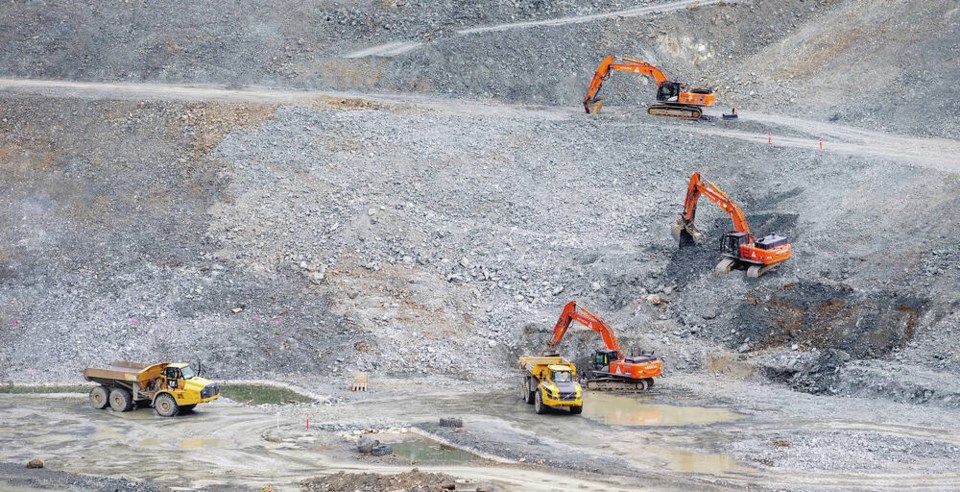A new program on Vancouver Island aims to decrease the amount of construction waste and divert surplus materials toward new uses and away from landfills.
The new Building Material Exchange (BMEx) program seeks to create a “circular economy” where fewer virgin materials are used and one company’s waste is salvaged and used as inputs by other companies in the construction sector.
“Basically the idea is that one company’s trash is another company’s treasure,” said Gil Yaron, managing director of circular innovation with Light House, a non-profit organization established in 2006 to advance sustainable building practices.
“A lot of material from the construction process and demolitions is going to landfills,” Yaron said. “We want to try to change that practice by basically supporting the construction sector to find matches where one company’s waste can be a material input into another company’s operations.”
According to a 2022 study, materials from the construction and demolition sectors made up 22.7 per cent of the garbage arriving at one Vancouver Island landfill.
Yaron said the free BMEx program will serve the construction sector roughly between Nanaimo and Victoria. He said materials that can be recycled include concrete, asphalt, metal, wood, glass, carpet, doors, flooring, drywall and fixtures.
“We basically are identifying where materials are coming from, whether construction sites or manufacturing sites, and then we are finding companies that could use those materials, and partnering those companies up,” Yaron explained. “They basically go off and work out the exact terms, such as sale or donation and transport. All those specifics around that get worked out between the partners themselves.”
Light House is busy identifying market players and doing its matchmaking. So far, it has reached out to over 700 companies on the island across the building materials value chain. It is also partnering with Nanaimo’s Habitat for Humanity to create a physical hub for contractors who have occasional and inconsistent amounts of materials to offload.
Over 100 companies are now registered with the program, and new companies are registering daily. Light House is also working on developing an online exchange for building materials similar to Facebook Marketplace, and has organized two “challenge events” in November modeled on the TV shows Dragons' Den and Shark Tank where firms can pitch ideas concerning material reuse.
Trevor Harmon, president of Szolyd Development in Victoria, heard about the BMEx program from an industry contact. His firm is a pre-cast concrete company that supplies components for building envelopes.
One of Harmon’s prototypes is a connector technology that connects beams to columns and can be used in mass-timber and factory-based construction, both of which are more environmentally friendly than traditional methods. Harmon said his connector product can incorporate recycled “aggregate” (rocks and other particulates) which can eventually be sourced through BMEx.
“We’re going to go from paying a lot of money to paying a very, very small amount of money for reclaimed materials,” he said. “On that one line item, we will cost-reduce that line item by at least 25 per cent.”
Harmon’s ultimate goal is to be able to offer “traceability” to his customers, telling them, for example, that a certain percentage of what they’re holding in their hands was sourced from reclaimed materials. “We’re looking for BMEx to provide an independent transparency layer, so that our customers can validate that.”
Harmon said the BMEx program resonates with his firm’s common-sense philosophy.
“We try to be a common-sense company,” he said. “When you think of a circular economy, there is a common-sense idea that we can keep doing it. That’s the way I like to approach it. If we do something this way, can we keep doing it forever?”



